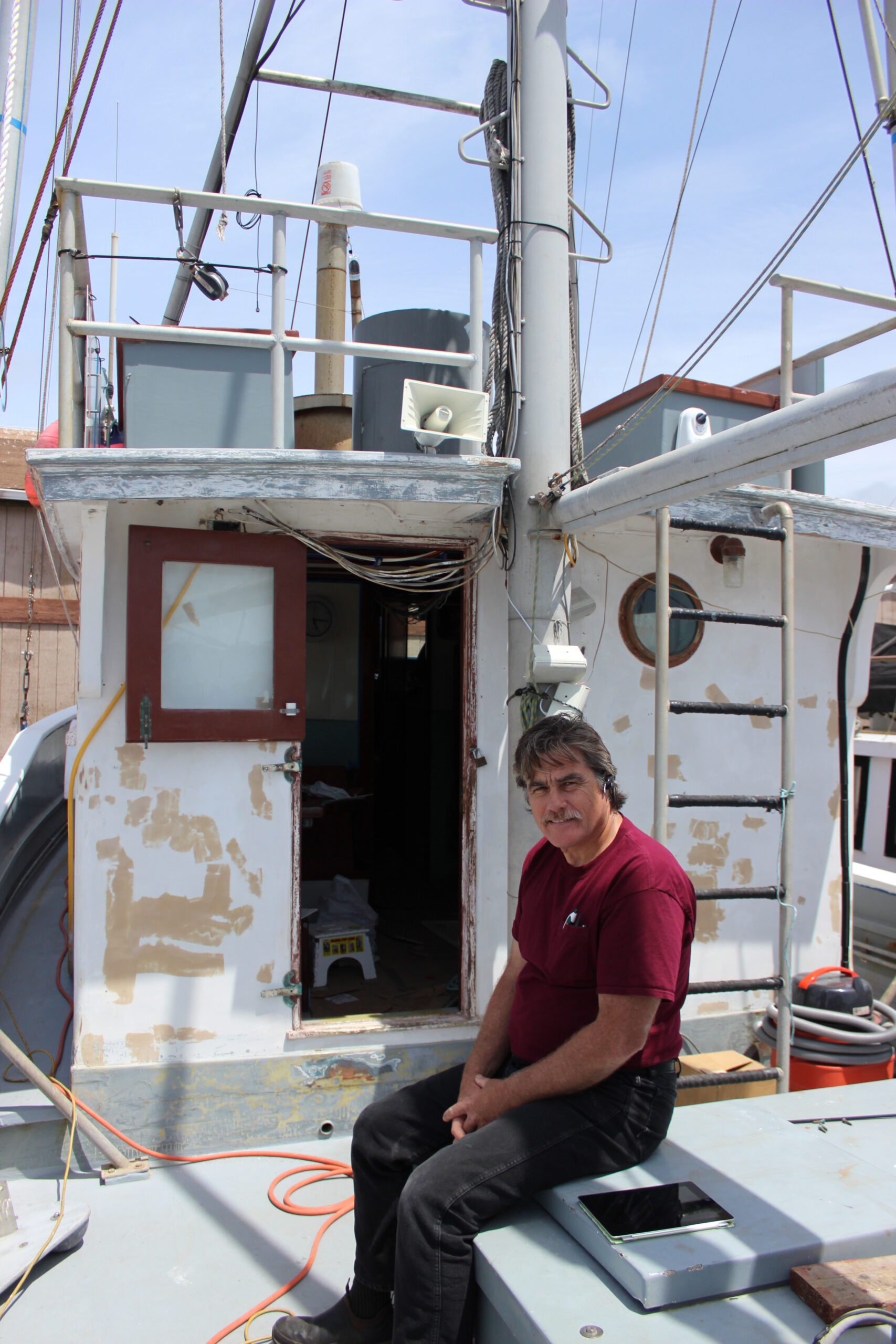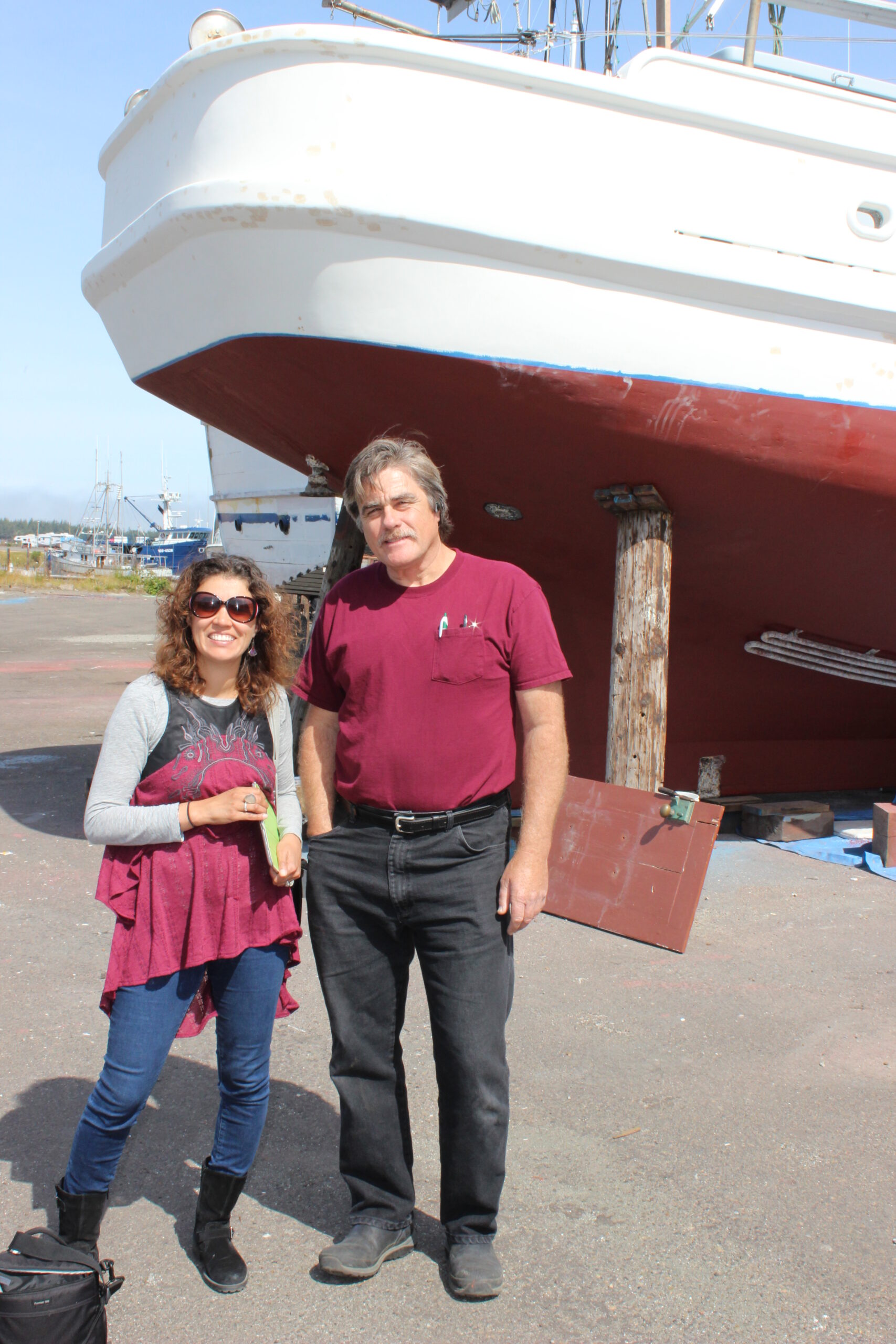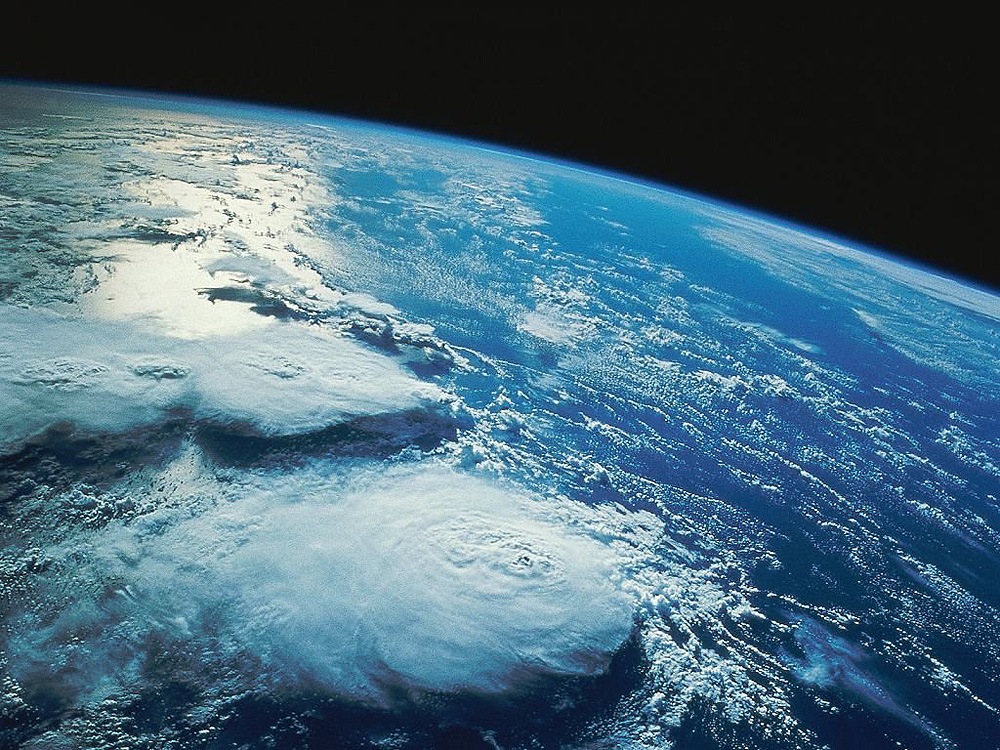“All water is off on a journey unless it’s in the sea, and it’s homesick, and bound to make its way home someday.”- Zora Neale Hurst
“Climate change is felt in the ocean first and ripples throughout our global environment,” said Rick Goche, fisherman, and owner of Sacred Sea Tuna, a sustainable tuna label, named a Top 10 Pantry Essential by The New York Times.

Rick and I held our climate talks in Winchester Bay, Oregon, worlds away from Paris, the host city of COP21. We met on his dry-docked boat as it was readied for the start of the albacore tuna season. Rick has spent his lifetime on the water in three of the largest fisheries; albacore, salmon, and crab. Fishermen are at the front lines of Climate Change.

“Some of the apocalyptic projections I read about regarding the impact of climate change on the oceans are terrifying,” he said. Scientists agree with Rick. The United Nations Intergovernmental Panel on Climate Change predicts a 2 to 3-foot sea level rise by 2100. A 2015 study published in the journal, Science Advances, reports an additional 10-foot sea level increase in the next century unless we move away from buying fossil fuels. Florida, Louisiana, Texas and large parts of the East Coast will be underwater. The British Isles, coastal Asia, and the European Plains will be washed away like the mythical city of Atlantis if this scenario is actualized.
Ironically, marine life totals will shrink as the ocean grows. A study funded by the National Oceanic and Atmospheric Administration (NOAA), found CO2 absorbed by the world’s oceans to be detrimental to marine life. The ocean absorbs one-quarter of all CO2 emissions. Scientists once believed this discovery good news. But scientists are learning water isn’t immune from greenhouse gas after all. CO2 gasses held underwater has decreased the water pH, causing ocean acidification. Sea-life with a hard structure, as much of our favorite seafood; oysters, clams, scallops, lobsters, shrimp, and crabs are particularly vulnerable. Oysters are the first victim to ocean acidification, with a loss of billions of the slippery mollusk in the Northwest.
Crab season is canceled until further notice due to contamination of the crustacean from a toxic algae bloom fed by warmer than average ocean water off the Pacific Coast.
Our vast oceans are what sets Earth apart from every planet in our solar system and possibly the entire universe. All life hinges upon the water. And ironically, water is what may take life away. Species by species, square mile by square mile, will “return to the ocean,” as Zora Neale Hurst wrote. But the story can be rewritten. It begins with our active engagement in our choices.

The climate pact signed by 200 nations in Paris is hailed as the most far-reaching in its history. But climate talks needs to continue to make any lasting change. The discussion need to occur in boardrooms, governmental forums and our living rooms, kitchens, classrooms, and dry-docked boats.
I challenge you to draft your personal climate change pact with your family, a group of friends, co-workers, classroom and include a timeline to reach goals. The United Nations website offers action ideas. I plan to draft one with my family as a New Year’s resolution. As Rick reminds us, “Whatever we do, wherever we are on the planet ultimately impacts the rest of the planet.”
There is power in the collective!
Eat less water at the kitchen table.
Be well,
Florencia
click to Read & Leave a comment
Click to close comments
Comments